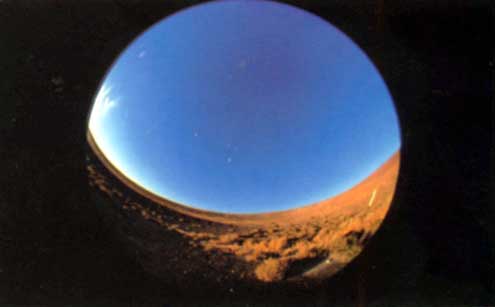James Turrell
James Turrell was born in Los Angeles, California, in 1943 and between 1961 and 1965 studied Psychology, Mathematics, Art History and other science subjects like Geology and Astronomy at Pomona College in Claremont, California. He later took part in an experimental programme at the University of California, Irvine, where his research involved a combination of art and technology. James Turrell has studied passionately the way human beings perceive light and how they apprehend space by means of it. During his long career, Turrell has turned light into an object with which to extract and implement the sensuality emanating from our sensations or rather the pleasant feelings and reflections that arises from them. All this done with great spirituality, as primitive societies did without the aid of technology. As the artist explains, “It is important to modulate both light and sound. We appreciate light also by experiencing its absence.” And the question he asks the spectator is this: What do I really see and what do I feel? His most recent work explores the disappearance of the barriers in existing architecture by means of his light installations. According to Turrell, “only by using light can you control visual perception at any time […]. That is why my work is intrinsically involved with the creation of spatial structure. This is usually achieved with physical materials, concrete, steel or glass, but I do it with light.” Like the architect Louis Kahn, Turrell works in the conviction that “natural light provides emotion according as it is allowed to enter and modify the species with its nuances during the different times of the day and the seasons”. These experiences will be reflected in the site-specific piece he is going to make for the IVAM, where the artist will create a Skyspace, a closed space but open to the sky. The treatment of interior light will make the sky appear on the same plane as the ceiling of the room, just at the intersection between the interior and exterior space. The perception of the sky will change throughout the day, from dawn to dusk. By visiting the installations that he will make in Gallery 1 of the museum, the perception of space will be modified and the changes of photic intensity will be perceived in the dark. The installations that he will make for the IVAM will be transformed into places where human beings will define space, on the threshold between silence and darkness. The artist will provide the ingredients and the spectators will only have to look. Turrell does not actually create anything new; what he creates are the conditions that allow us to understand what light is and its consequences in space. In the artist’s own words, “I want to depict the light that we see in dreams and the spaces that we see come from those dreams and that are known to those who live in those spaces”.



